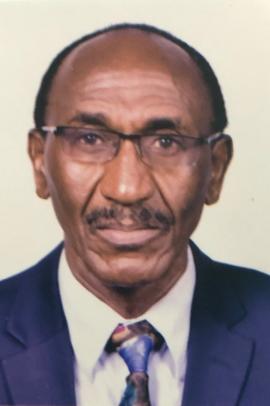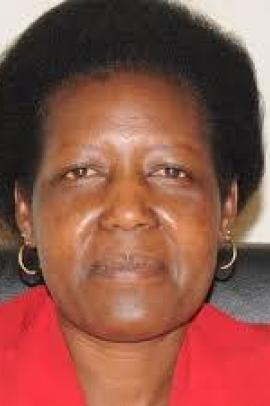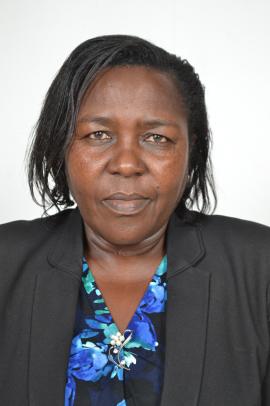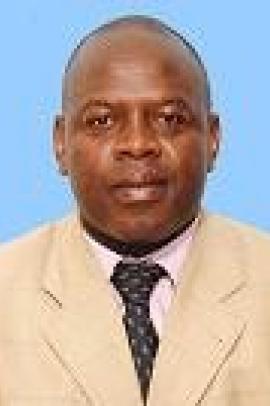Charo Kenneth Kazungu is a Land Surveyor and an Environmental Planner by training. He developed an interest in project management early in his carrier when he got into public service and placed in charge of implementing Government projects in the Lands and Environment dockets, and also when his then employers, the Ministry of Local Government partnered with UN Habitat, to implement Slum upgrading programs in the then County Council of Kilifi. After devolution, he was appointed as a Chief Officer in charge of infrastructure at the County Government of Kilifi, and was entrusted with rolling out and implementing a new infrastructure master plan for the new devolution unit. Due to this, he decided take up a masters course in Project Planning and Management in the University of Nairobi in order to broaden his knowledge in the management of projects.

Effectiveness of solid waste management programs in Kenya: a Case of Kilifi County
Research Supervisors
Dr. Johnbosco M.Kisimbii
The Global Waste Management Outlook (GWMO), (2010), estimates solid waste (SW) production in Kenya at 2 billion tonnes which forms part of mandate county governments are responsible for disposal. Thus a need to make sure that the counties have efficient solid waste management (SWM) programs. The study was therefore done to evaluate the Efficiency of SWM Programs in Kenya- specifically Kilifi County, being guided by four specific objectives; How Public-Private Partnership(X1), Community Participation (X2), Budget Allocation (X3) and Government Policy (X4) Influence Effective SWM Programs in Kilifi county. Descriptive design with the target population of 1,453,787drawn from Kilifi County where multistage and random sampling techniques gave sample size of 72 subjects. Data was captured using questionnaires. Data analysis was through descriptive statistics and chi square to ascertain effect of the variables using SPSS. Findings were that all the four variables of the study indeed have effect to SWM programs in Kenya. X1 Hypothesis test results revealed that the calculated χ2(223.4 = P< .001). While X2 indicated that, the Cχ2 =268.5 = P-value in the asymptotic significance column was 0.00001. X3 revealed Cχ2 =216.9 where P-value was .00001. And X4 established χ2C=201.88 with P Value and P-value was 0.0001. The study rejected all the HO and accepted H1 which established there was relationship between all the study variables and waste management programs. Illustration of R=0.532 represents the simple correlation; therefore, a moderate positive linear relationship among independent variables and effective SWM programs in Kenya existed. R2=0.283 which indicated the total difference the dependent variable is clarified by the independent variables. In this case, the four independent variables explained 28.3% of the variability in effective SWM programs in Kenya and 72.7% variation in sustainable implementation being described by external issues not discussed in this research project. Regression analysis was done model equation; Effective SWM Programs (Y) =3.197+ 0.188 Public-Private Partnership (X1) + 0.213 (Community Participation (X2) + 0.177 (Budget Allocation (X3) + 0.080(Government Policies (X4). The model described that all the elements had a positive influence on the effective SWM programs. This regression equation proved that when all other elements are held constant (no determinants or elements) effective SWM programs would be 3.197. The study concluded, public-private partnership and availability and proper management of budget allocation as key determinants of effectiveness of the SWM programs. It also uncovered that community participation greatly weighs in on the performance of SWM programs thus improved greatly efficiency and effectiveness of the programs. Lastly, proper government policies must be imposed to ensure legal policy and regulatory frameworks to ensure proper governance of SWM programs and sustainability. Future research required in all Counties across the Country. This will bring relevant information that could be useful for policy framework that focuses on to promoting effectiveness of the SWM in Kenya.





